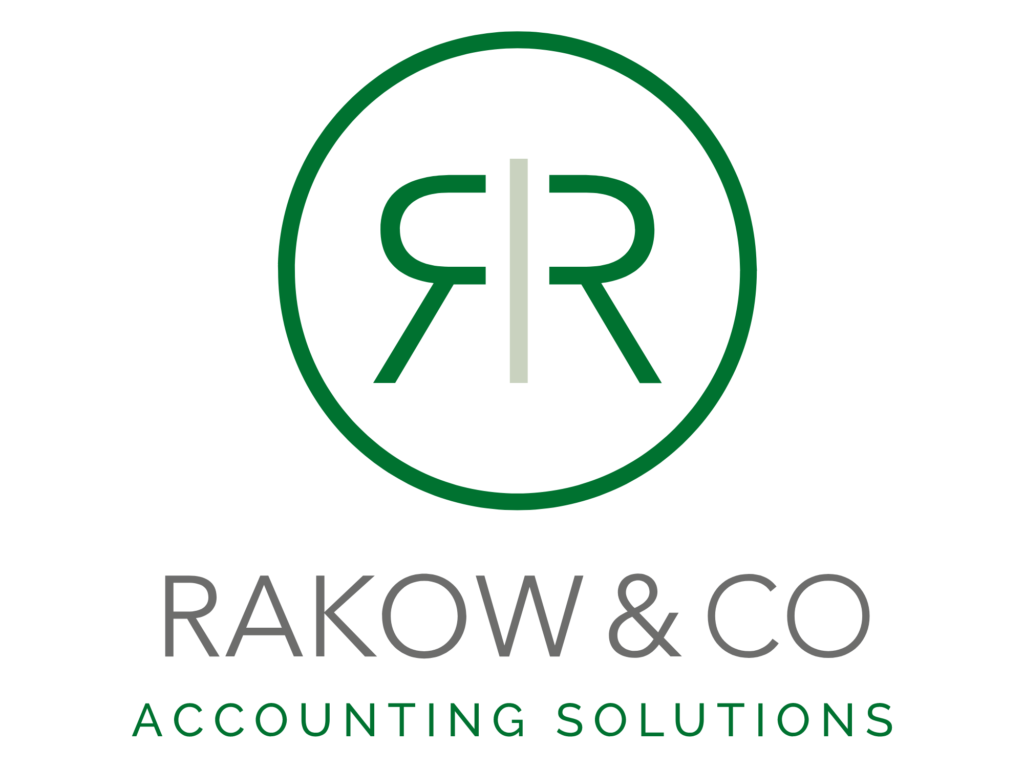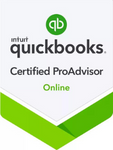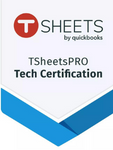Many small business owners handle their own bookkeeping and accounting, but without a structured process, mistakes are easy to make. Errors such as failing to track expenses, misclassifying transactions, or skipping bank reconciliations can lead to cash flow issues and tax penalties. Keeping your financial records accurate is essential for monitoring your business’s performance and ensuring compliance with tax regulations.
Whether you manage your books yourself or work with a bookkeeping service, knowing the most common mistakes in bookkeeping and accounting can help you avoid costly errors. Below are some of the most frequent issues businesses face and how to prevent them.

1. Failing To Keep Accurate Records
Accurate bookkeeping and accounting ensure that every transaction is recorded correctly. If financial records are incomplete or outdated, business owners may struggle to track expenses, manage cash flow, and prepare for tax season.
How To Avoid This Mistake
- Record transactions as they happen instead of waiting until the end of the month.
- Use accounting software that automatically syncs with bank accounts.
- Many businesses work with bookkeepers who help maintain financial records and ensure accuracy. Having a system in place for tracking transactions also makes it easier to reconcile accounts and prepare financial reports.
2. Not Separating Business And Personal Finances
Mixing personal and business expenses can create confusion when filing taxes or preparing financial statements. This is a common mistake, especially for small business owners who use personal credit cards for business purchases.
How To Avoid This Mistake
- Open a separate business bank account and credit card.
- Pay yourself a salary rather than withdrawing money at random.
- Keeping business and personal finances separate also makes it easier to track expenses and ensures financial reports are accurate. When reviewing transactions, it’s important to categorize them properly so business-related costs are clearly defined.
3. Misclassifying Expenses
Each expense should be categorized correctly to maintain accurate bookkeeping and accounting records. If transactions are misclassified, financial reports may not reflect the true state of the business, and tax deductions may be missed.
How To Avoid This Mistake
- Review expense categories regularly to ensure transactions are classified correctly.
- Understand which expenses qualify as deductible business costs.
- Accounting software can help automate categorization, but errors still happen. Businesses that manage large volumes of transactions often rely on bookkeeping services to ensure expenses are recorded properly.
In some cases, business owners also work with bookkeeping services in NJ to ensure compliance with local tax regulations.
4. Not Reconciling Bank Statements
If bank statements don’t match the records in accounting software, there may be missing transactions, duplicate charges, or incorrect balances.
How To Avoid This Mistake
- Reconcile bank and credit card statements at least once a month.
- Use cloud-based bookkeeping tools that connect to bank accounts in real time.
- Businesses that manage large transaction volumes often schedule regular reconciliations to ensure financial data remains accurate. If discrepancies appear, resolving them quickly prevents errors from carrying over into future reports.
5. Ignoring Accounts Receivable And Payable
Failing to reconcile financial records with bank statements can lead to missing transactions, duplicate charges, or incorrect balances. This is a critical part of bookkeeping and accounting that helps businesses catch discrepancies before they become bigger problems.
How To Avoid This Mistake
- Set up a structured invoicing system to track outstanding payments.
- Follow up with customers who haven’t paid invoices on time.
- Businesses that deal with multiple vendors and clients often use bookkeeping and tax services to track incoming and outgoing payments. A structured accounts receivable and payable system helps prevent unexpected cash flow gaps.
For businesses that need help managing tax reporting alongside bookkeeping, integrating bookkeeping and tax services can help maintain compliance.
6. Forgetting To Track Cash Transactions
Not every payment is made electronically. Some businesses still handle cash transactions, which need to be recorded just as accurately as digital payments.
How To Avoid This Mistake
- Record cash transactions just like card or bank transfers.
- Keep receipts for all cash sales and expenses.
- Maintaining accurate cash records is an essential part of bookkeeping and accounting, as it prevents miscalculations and missing income on financial statements.
7. Not Preparing For Tax Season Year-Round
Many business owners wait until tax season to organize their financial records, leading to unnecessary stress and missed deductions. Keeping up with bookkeeping and accounting throughout the year simplifies tax preparation.
How To Avoid This Mistake
- Track income and expenses consistently rather than rushing to organize records before tax deadlines.
- Review tax-deductible expenses regularly and document them properly.
- Businesses that stay on top of bookkeeping and accounting throughout the year avoid last-minute tax filing issues and are better prepared for audits.
For businesses looking for a structured approach, a small business tax preparation checklist can be a useful tool.
8. Not Using The Right Bookkeeping Solutions
Manual bookkeeping or outdated spreadsheets can increase the risk of data entry errors. Businesses that use modern bookkeeping and accounting tools often find it easier to manage their financial records and avoid common mistakes.
How To Avoid This Mistake
- Use cloud-based bookkeeping software that automates calculations and reduces human error.
- Choose software that integrates with payment processing and payroll systems.
- Businesses that deal with complex financial management often use bookkeeping solutions designed for automation and reporting. These tools make it easier to track revenue, manage expenses, and generate real-time financial reports.
Some businesses also use Add-On Services to optimize bookkeeping processes and reduce errors.

Keeping Bookkeeping And Accounting Organized
Mistakes in bookkeeping and accounting can lead to financial mismanagement and tax complications. Keeping financial records organized, tracking expenses properly, and reconciling accounts regularly can help businesses maintain accuracy. Whether handled in-house or through outsourced services, structured bookkeeping practices ensure financial reports reflect the true state of a business.
By identifying common mistakes early and putting the right bookkeeping systems in place, businesses can avoid costly errors and stay on top of their financial responsibilities.
Take Control Of Your Bookkeeping Today
Managing bookkeeping and accounting properly can save you time, reduce stress, and help you avoid financial errors that could impact your business. By keeping accurate records, separating personal and business finances, and using bookkeeping solutions that fit your needs, you can prevent common mistakes before they happen. If keeping up with your books has become overwhelming, working with a professional bookkeeping service can provide the structure and accuracy your business needs.
Rakow & Co offers bookkeeping services tailored to small businesses, ensuring accurate financial records and tax compliance. Contact our team today to find a bookkeeping solution that works for you.
FAQs
How does cloud bookkeeping help prevent bookkeeping mistakes?
Cloud bookkeeping automates data entry, reconciliations, and reports, reducing manual errors. Read more about How Cloud Bookkeeping Enhances Flexibility and Efficiency.
What are the best accounting services for small businesses?
The best accounting services for small business owners include bookkeeping, payroll management, tax preparation, and financial reporting. Outsourcing these tasks ensures accuracy and compliance.
How can bookkeeping services help with tax planning?
Bookkeeping services track expenses, categorize deductions, and prepare reports that simplify tax filing. Learn more about 12 Effective Tax Preparation and Planning Strategies.
How do I know if I need professional bookkeeping services?
If bookkeeping is taking too much time or you’re making frequent mistakes, outsourcing can save you money and reduce stress. Find out more about professional bookkeeping services.
What bookkeeping solutions can help my business stay organized?
Using cloud-based bookkeeping solutions, automated invoicing, and professional bookkeeping services can help businesses maintain accurate records and financial stability.
What tax deductions should small businesses track throughout the year?
Many small businesses miss out on valuable tax deductions simply because they don’t track their expenses properly. Keeping accurate records of deductible expenses—such as office supplies, travel costs, marketing expenses, and business meals—can lower your taxable income and reduce your overall tax bill.
To help businesses stay organized, we’ve created a Small Business Tax Deduction Cheat Sheet, which outlines key deductions you should be tracking. Download the Tax Deduction Cheat Sheet here to ensure you’re maximizing your tax savings.
What bookkeeping records should small businesses keep for tax purposes?
The IRS requires small businesses to maintain proper financial records to support income and expenses reported on tax returns. Essential records include receipts, invoices, payroll records, bank statements, and tax filings. Keeping these records organized is important in case of an audit or for tracking deductible expenses.





